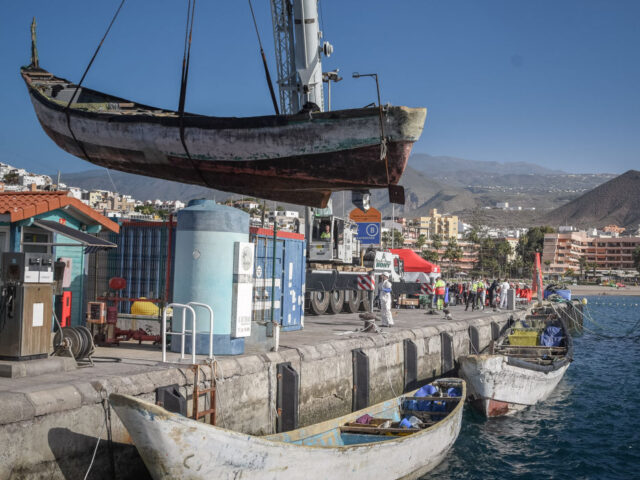BARCELONA, Spain (AP) – Spanish police have dismantled a network that profited off families of dead migrants seeking to repatriate the remains of their loved ones, authorities said Wednesday.
Fourteen people have been detained and one person is under investigation in the southern cities of Almería, Murcía and Jaén, following a probe by Spain´s Civil Guard. Authorities also seized 70,000 euros ($76,000) in cash and several cars.
For years, the network made money by charging families in Algeria and Morocco for providing them often false information about migrants who had died at sea or whose bodies have washed ashore in southern Spain.
‘Totally Without Scruples’ People Smugglers Kill Again: 41 Dead in Mediterranean Migrant Shipwreck https://t.co/tSdXVP2qgU
— Breitbart London (@BreitbartLondon) August 10, 2023
The suspects also made the migrants’ families sign illegal contracts for body identification and repatriation purposes, according to a police statement.
The suspects, who used fake profiles on social media to lure the relatives, collaborated with workers at public institutions with access to unidentified bodies at morgues and funeral homes.
The criminal network, believed to have been led by a Moroccan citizen, falsely told families of dead migrants that the only way to recover their bodies was through services the suspects offered, requiring advanced payment, police said.
The suspects are being accused of fraud, revealing confidential information, disrespecting the deceased, belonging to a criminal organization, falsification of documents and bribery.
Families and relatives of tens of thousands of migrants who have died trying to reach Europe by crossing the Mediterranean Sea often struggle to find, identify and repatriate their remains. While some international and local organizations try to assist families, the vast majority of missing migrants are never found and presumed dead.
Even when bodies are recovered, few are ever identified and procedures needed for repatriation are complex and expensive, leaving them out of reach for most.
In Spain, only 50% of migrant deaths registered in the country between 2014 and 2019 were identified, according to a report by the International Committee of the Red Cross.
Suspected People Smugglers Arrested After Horror Sinking Which May Have Killed Hundreds https://t.co/TCJcZV0tK4
— Breitbart London (@BreitbartLondon) June 16, 2023

COMMENTS
Please let us know if you're having issues with commenting.